#George Lucas
Text
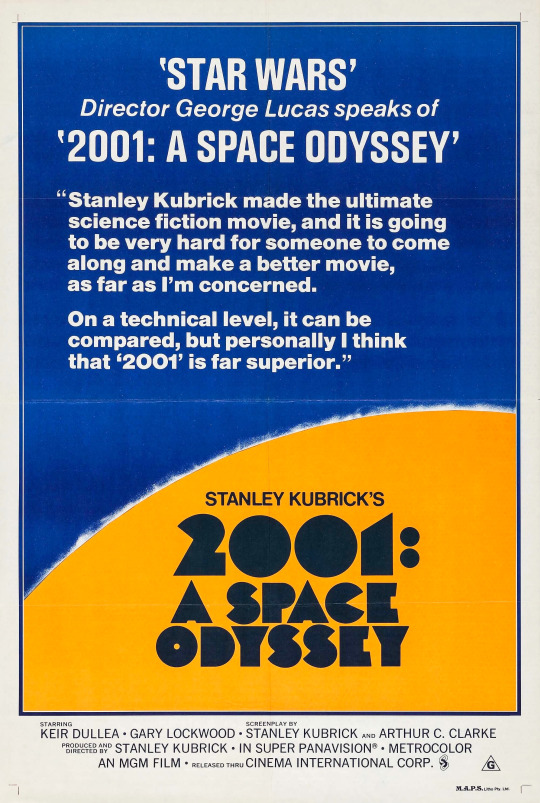
George Lucas raves about 2001: A SPACE ODYSSEY in a 1978 re-release poster from Australia.
103 notes
·
View notes
Note
Good evening, @writerbuddha. I'm a little confused about Anakin's arc in "The Phantom Menace", especially in the climax. What is Anakin's arc in Episode I about and how is that reflected in the film's climax and ending? What does the character learn or fail to learn at the end of the film?
Hello! :)
George Lucas described The Phantom Menace as basically Act I in an epic, where the characters and the basic themes are introduced. Episode I is actually the beginning of Anakin's arc, arching over the trilogy. We're introduced to him and his flaws as well.
We see that Anakin is a very compassionate, courageous and kind person who "gives without a thought of reward" and "knows nothing of greed," and being a Jedi Knight, a guardian of peace and justice in the known universe, who lives for others, is what he dreams about doing. However, we get to see the crack on his armor: Anakin has a fear of losing is mother, he doesn't want things to change, although Shmi tells him, "you can't stop change any more than you can stop the suns from setting." The Jedi Masters, explaining, there is always fear behind anger, there is always anger behind hate, and these are add up to a state of suffering, and lead to evil behavior. Because he has much fear in him, the fear of losing a coming and passing thing, there's a possibility for that to grow into much suffering, not just on his part, but on the part of others. This is the groundwork upon which Episode II and III is built, the foreshadowing of the fall of Anakin Skywalker and the rise of Darth Vader.
With that said, in The Phantom Menace, Anakin learns some lessons. For example, he has to acknowledge that being clean of fear is not limited to having the courage to die for them - it also includes having the courage to live without them, and in that sense, he is very much fearful. He also has to face with the fact that a Jedi Knight can be killed, which feeds into a larger realization: when the good guys win, sometimes, one of them dies, and you must accept the fact that in life, there is no clean, perfect, absolutely satisfying happy end. There are things that we cannot control, so we will never get it just how we want it. Anakin is accepted into the Order, but he had to leave his mother behind. He saved Naboo, but Qui-Gon died. I think it's important that at the end of the movie, everyone seems content, smiling, but Anakin only smiles at Padmé. So, to me, that shows, he has troubles with emotionally accepting this. Which, again, is the inability to let go of what cannot stay.
The way I see the movie, the character who learns something at the end of the film, whose arc is completed in the movie, reflected in the film's climax, and it's also the central arc of the movie, is Padmé and Naboo as a whole: the peaceful and the warrior-like are frowning upon each other, one lives on the surface, in flowery cities, the other is underwater surrounded by beasts, one is led by a queen the other is by a king. Padmé is despised of the concept of war and insist, negotiation is always the answer, but eventually, she must realize that sometimes fighting is necessary. Instead of waiting for the strong and wise leader to solve her problems (which is how tyrants get power: sit back, people, leave this to me. I will fix it, I will make a safe and secure society… in fact, why don’t you put me in charge of everything? You can get on your life, I will bring your security, safety and prosperity!) she decides to stand up, to not to descend into political passivity and apathy, and save her planet. She reconciles with the Gungans, as well as her own warrior-side, and they mutually accept each other at the end of the movie, in harmony and balance.
I hope this is helpful! :)
24 notes
·
View notes
Text

The original slogan for Star Wars was far less encouraging than what ended up in the film. Marcia Lucas suggested that George change the phrase to remove the time limit, and the rest is history.
4K notes
·
View notes
Text
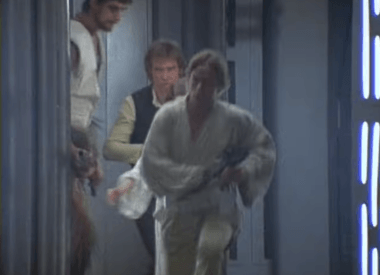
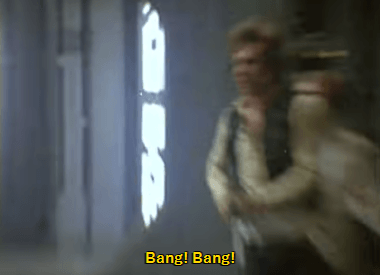
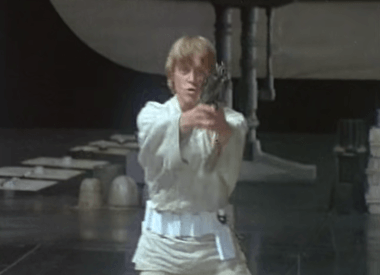
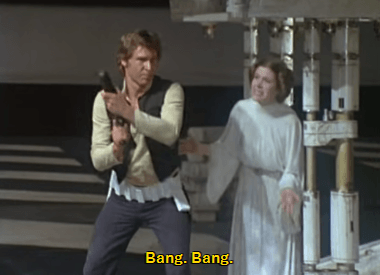
Harrison Ford, Carrie Fisher, Mark Hamill and Peter Mayhew - Star Wars scene rehearsal (1976)
#star wars behind the scenes gif#the making of star wars#harrison ford#carrie fisher#mark hamill#peter mayhew#han solo#princess leia#luke skywalker#film outtakes#a new hope#george lucas#seventies#1976#1977#gif#chronoscaph gif
2K notes
·
View notes
Text
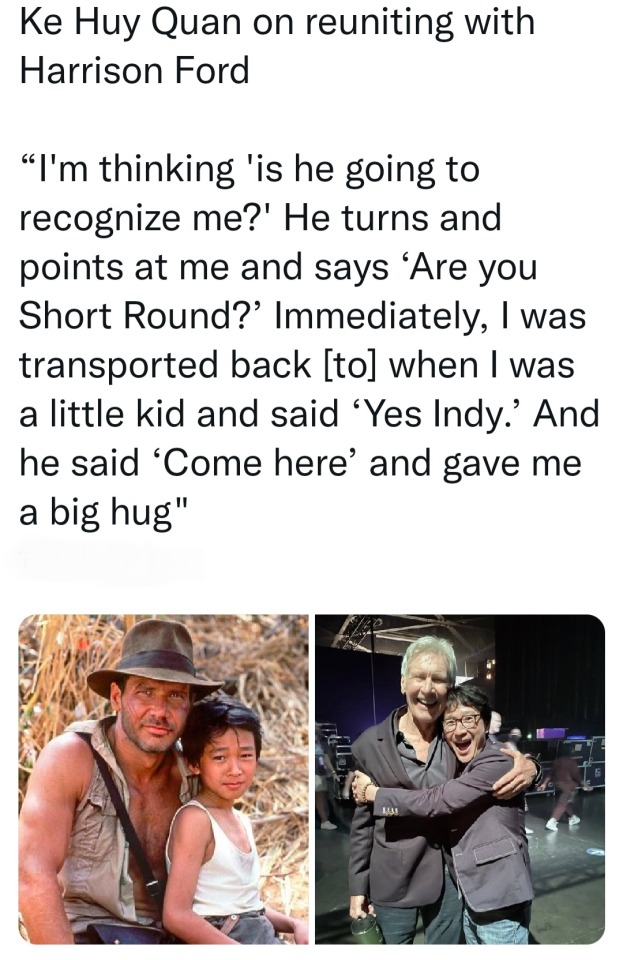
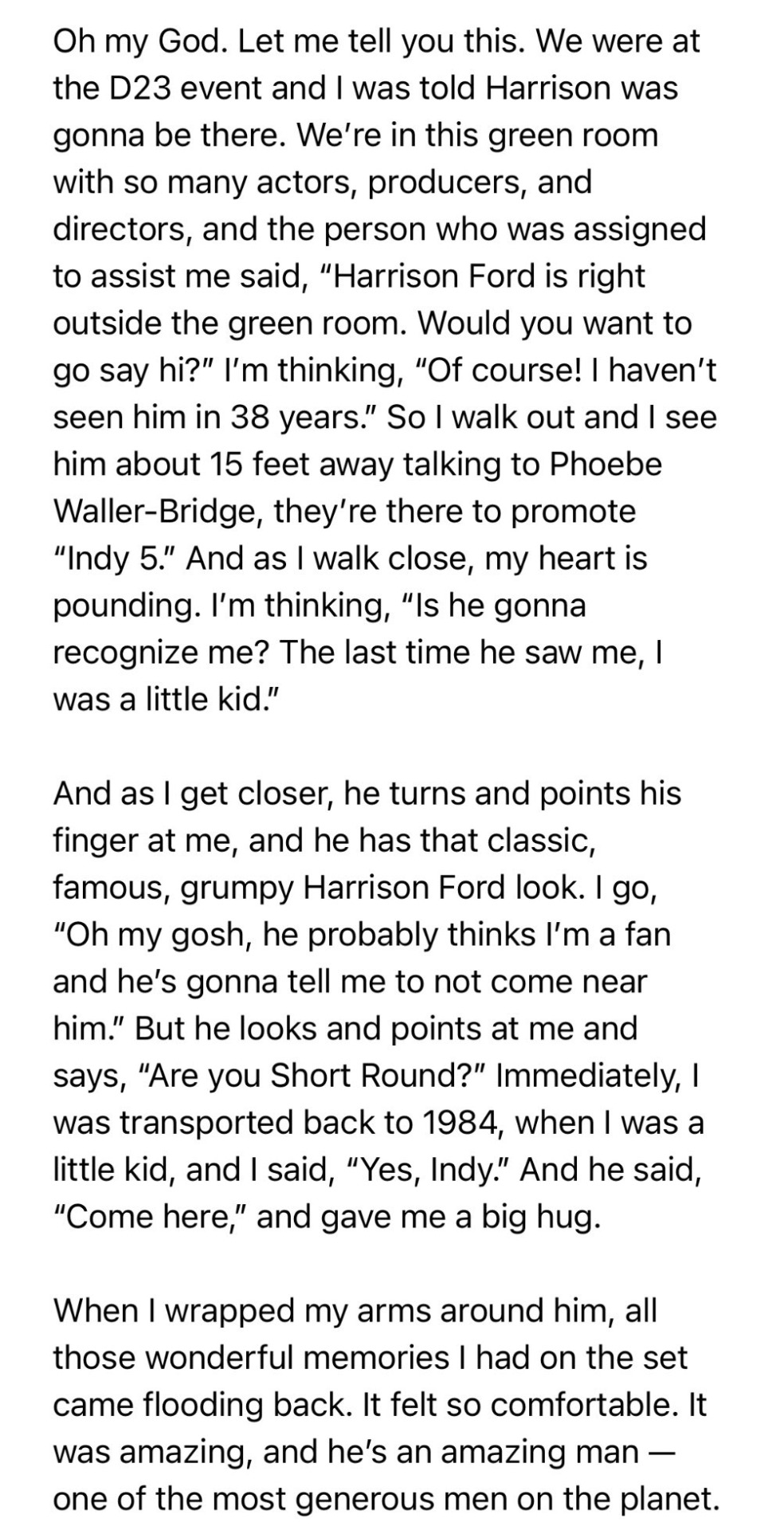
#Indiana Jones and the Temple of Doom#The Temple of Doom#Temple of Doom#Harrison Ford#indiana jones#Indiana Jones#indy#Ke Huy Quan#Short Round#Photo#adventure#action#fantasy#Frank Marshall#Kathleen Kennedy#Steven Spielberg#Spielberg#George Lucas#Lucas#movie#80s#1984#2022#Indiana Jones 5
18K notes
·
View notes
Text
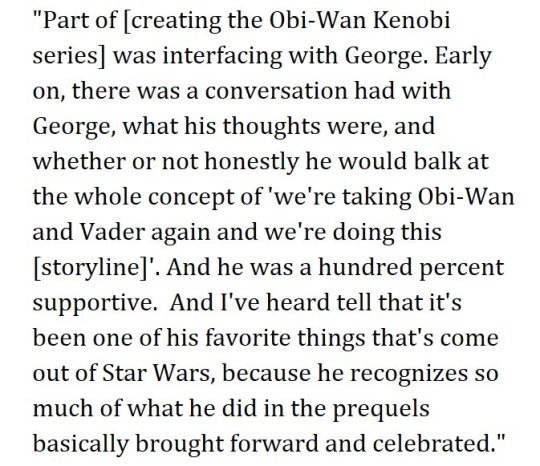
"Part of [creating the Obi-Wan Kenobi series] was interfacing with George. Early on, there was a conversation had with George over his thoughts were, and whether or not honestly he would balk at the whole concept of 'we're taking Obi-Wan and Vader again and we're doing this [storyline]'. And he was a hundred percent supportive. And I've heard tell that it's been one of his favorite things that's come out of Star Wars, because he recognizes so much of what he did in the prequels basically brought forward and celebrated." --Pablo Hidalgo, Full of Sith podcast
#VINDICAAAAAATIOOOOONNNN
#THE OBI-WAN KENOBI SERIES NAILED BEING AN EXTENSION OF THE PREQUELS
#FROM THE AESTHETIC DETAILS OF FIGHT CHOREOGRAPHY TO THE THEMES OF THESE CHARACTERS
#THAT SHOW UNDERSTOOD THE ASSIGNMENT
#AND I'M GOING TO STAPLE THIS TO EVERYONE'S DOOR OUT OF SHEER GLEE THAT GEORGE LUCAS AGREES
700 notes
·
View notes
Text
Dooku didn't leave because of the Jedi.
At least, if you're going by George Lucas' word.
In deleted scenes of Attack of the Clones, when we learn about Dooku's departure and his values, there's no mention of the Jedi or "the Jedi Order as an institution".
And every time Lucas refers to Dooku's disenchantment and reason for falling, he doesn't mention the Jedi.
"When you realize that Dooku is Darth Tyranus, it explains what Darth Sidious did after Darth Maul was killed: he seduced a Jedi who had become disenchanted with the Republic. He preyed on that disenchantment and converted him to the dark side, which is also a setup for what happens with Anakin."
- Mythmaking: Behind the Scenes of Attack of the Clones, 2002
"[Dooku is] one of the few Jedi who became disenchanted with the Republic and left the order and he is leading a separatist movement."
- Vanity Fair, 2002
"I wanted a more sophisticated kind of villain. Dooku’s disenchantment with the corruption in the Empire is actually valid. It’s all valid. So, Chris plays it as, 'Is he really a villain or is he just someone who is disenchanted and trying to make things right?'"
- Starlog Magazine #300, 2002
He probably meant the Republic/Senate in that last one, but you get the point. And you're seeing the pattern, right?
Dooku's problem isn't the Jedi, it's the Republic.
He's become disenchanted with a system that - according to Lucas' prologue in the 2004 book Shatterpoint - worked for 1,000 years...
"For a thousand years, the Old Republic prospered and grew under the wise rule of the Senate and the protection of the venerable Jedi Knights."
... but has been rendered ineffective because of 1) senators becoming corrupt and 2) corporations gaining political power.
"But as often happens when wealth and power grow beyond all reasonable proportion, an evil fueled by greed arose. The massive organs of commerce mushroomed in power, the Senate became corrupt, and an ambitious named Palpatine was voted Supreme Chancellor."
That's the message Dooku runs on, when he rallies the systems to form the Separatist Alliance.
"By promising an alternative to the corruption and greed that was rotting the Republic from within, Dooku was able to persuade thousands of star systems to secede from the Republic."
The Jedi aren't really a factor in his decision to leave.
Why would they be? Their political status isn't very high, they're virtually powerless, as illustrated by the film's narrative and stated repeatedly by Lucas.
On the contrary, as we already established in this post, Lucas full-on confirmed that Dooku actually carries the sympathies of most of the Jedi. Again:
Most Jedi agree with Dooku, ideologically.
As far as the Jedi are concerned, the politicians are effing up the Republic, and it sucks because the Jedi see this but aren't allowed to interfere in the political process. They have to resort to looking for loopholes in their mandates to actually get stuff done.
That's what that whole "she's a politician" scene is meant to hint at. In the commentary of Attack of the Clones, Lucas uses a similar turn of phrase as he does with Dooku.
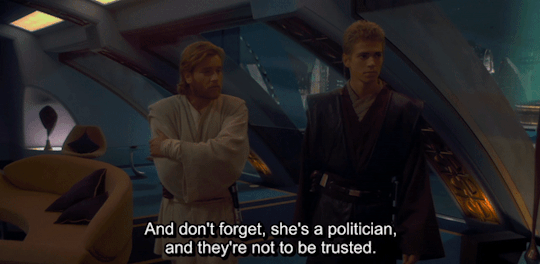
"[This scene gives us] a chance to talk a little bit about politics and the Jedi’s disenchantment with the political process, due to the corruption and the ineffectiveness of the Senate."
- Attack of the Clones, Director’s Commentary, 2002
Considering all this, it becomes clear that the intended narrative surrounding Dooku's decision to leave the Order is not:
"The Jedi are dogmatic and asleep at the wheel except for Dooku, who is ahead of the curb and sees the system is flawed, so he left."
It's actually:
"ALL Jedi see the system is flawed, Dooku's the only Jedi who decided to take it a step further and leave the Order so he can try to get into politics himself and change things."
That's why they hesitate to accuse him of murder.
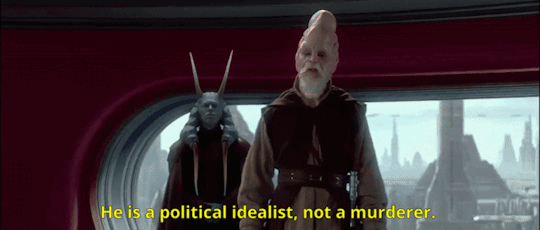
That's why in an earlier draft of the Attack of the Clones script, by the end of the second act, Mace STILL has his doubts that Dooku would sign a treaty with the Trade Federation to attack the Republic.

As far as the Jedi are concerned, Dooku is out there fighting the good fight, making noise because whenever they try to protest it falls on deaf ears... until his betrayal on Geonosis.
After all, let's not get it twisted: the Dooku we're introduced to in the films and The Clone Wars, isn't really just Dooku anymore.
He's Darth Tyranus.
A point Lucas makes sure to highlight in his Shatterpoint prologue:
"Unbeknownst to most of his followers, Dooku was himself a Dark Lord of the Sith, acting in collusion with his master, Darth Sidious, who, over the years, had struck an unholy alliance with the greater forces of commerce and their private droid armies."
It's not about doing the selfless thing for Dooku, anymore. He's knowingly part of the problem.
He's all about ambition, now. His personal goals are things like overthrowing Sidious and becoming the most powerful Jedi.
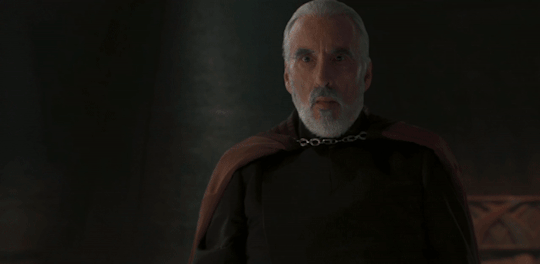
"[Anakin's] ambition and his dialogue here is the same as Dooku’s. He says “I will become more powerful than every Jedi.” And you’ll hear later on Dooku will say “I have become more powerful than any Jedi.” [...] It is possible for a Jedi to want to become more powerful, and control things."
- Attack of the Clones, Director’s Commentary, 2002
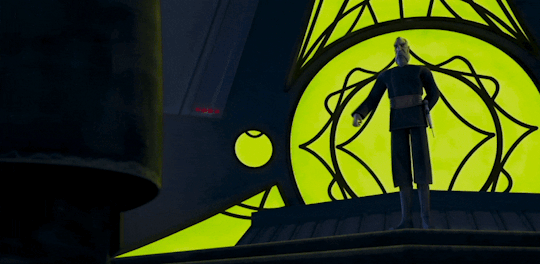
"If you put two Sith together, they try to get others to join them to get rid of the other Sith. [When revealing the truth to Obi-Wan], Dooku's ambition is really to get rid of Darth Sidious. He's trying to get Obi-Wan's assistance in that and help in that, so that he and Obi-Wan could overthrow Sidious and take over."
- Attack of the Clones, Commentary Track 2, 2002
Y'know? Selfish things.
Dooku - like all other Sith, and like the very corporations and Senators he had sworn to destroy - is consumed by his own greed.
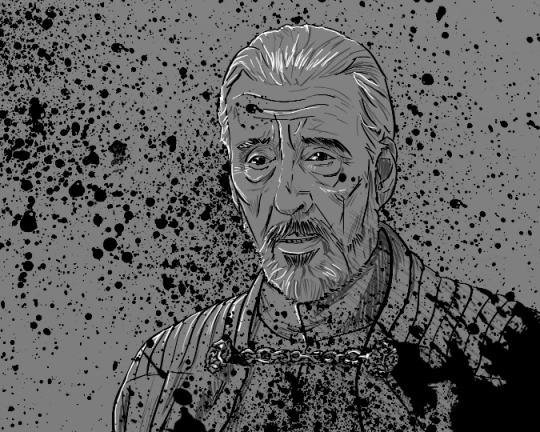
#also functionally-speaking Dooku being a Jedi is done to highlight the ambiguity throughout the investigation on whether or not this is#a scorned ex-Jedi or a straight-up bad guy... you're never sure until the end of AOTC. That and Dooku being a former Jedi shows that#even someone who was once selfless and dutiful can crave power and be selfish#which sets up a precedent for Anakin - who's already struggling with being a selfless Jedi - when HE falls to the Dark Side#Dooku being a former Jedi isn't a plot point meant to narratively criticise of the Order... it's meant to hint at Anakin's downfall.#dooku#george lucas#star wars#attack of the clones#long post#collection of quotes
2K notes
·
View notes
Text

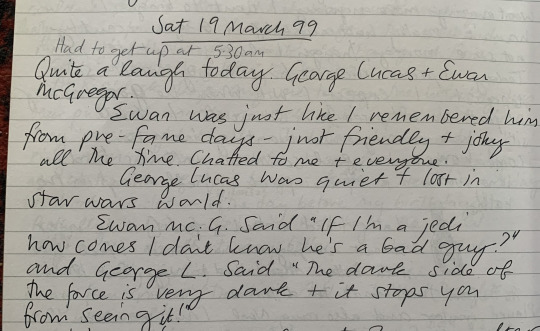
Translation of note above: (original tweet)
Sat. 19 March 99
Had to get up at 5:30am
Quite a laugh today. George Lucas and Ewan McGregor
Ewan was just like I remembered him from pre-fame days - just friendly and jokey all the time. Chatted to me and everyone.
George Lucas was quiet and lost in Star Wars world.
Ewan McG said "If I'm a Jedi, how come I don't know he's a bad guy?" and George L. said "The dark side of the force is very dark and it stops you from seeing it."
I love this!
910 notes
·
View notes
Text
Now that the trailer is out, it's probably best that I get this out of the way before acolyte releases
The Jedi are right about the Force and the dark side
The Jedi did not lose their way
The Jedi were not corrupted
The genocide of the Jedi was not their fault
The Jedi are not wrong for being part of the Republic, it is in fact a good thing
The Jedi are not arrogant for thinking the sith are gone
and while we're at it the sith are evil, always, end of discussion
The Jedi do not steal children
If someone wants to leave the Jedi, that's allowed, no one will stop them
The Jedi are right about attachment
Attachment is not love (SW uses the Buddhist definition because Lucas is a Buddhist and the Jedi are based off Buddhist monks, Buddhism defines attachment as being possessive or unwilling to let go of people or things)
The Jedi do not forbid emotions, they forbid being controlled by your emotions, you must control them
The Jedi are not forbidden from loving people, nor are they celibate, they just can't get married (big whup) because their duties must come first
Being peacekeepers doesn't preclude the Jedi from fighting in war, sometimes to keep the peace you have to fight back, especially when its against tyranny, see WWII (or Ukraine today)
Gray jedi are not a thing
The Jedi are not slavers or complicit in slavery
Oh and of course, the Jedi are not elitists for not training non Force sensitives, (Han voice) that's not how the Force works, dave filoni broke the rules so he could shoehorn sabine into a Jedi (to give the benefit of the doubt, I do believe sabine's role as ahsoka's apprentice was meant for an original character but things got condensed by executives, so maybe filoni isn't entirely to blame here)
Feel free to add anything I forgot
Do not, DO NOT!! add anything Jedi critical, I'm done with it and won't hear it, don't have something nice to say? Then go away, I will block on sight, either reblog without comment (either in the reblog or the notes) or don't interact at all
#wooloo-writes#wooloo writes#star wars#sw#jedi#jedi order#pro jedi#in defense of the jedi#the acolyte critical#the acolyte#sw acolyte#anti the acolyte#anti acolyte#acolyte critical#star wars the acolyte#anti filoni#anti dave filoni#dave filoni critical#the jedi were right#the jedi did nothing wrong#george lucas#anti gray jedi#anti grey jedi
807 notes
·
View notes
Video
Happy Star Wars day!
I love how happy Mr Jackson is upon hearing those final words :3
#may the forth be with you#star wars day#samuel l jackson#the purple lightsaber#george lucas#mace windu#OOC
4K notes
·
View notes
Text
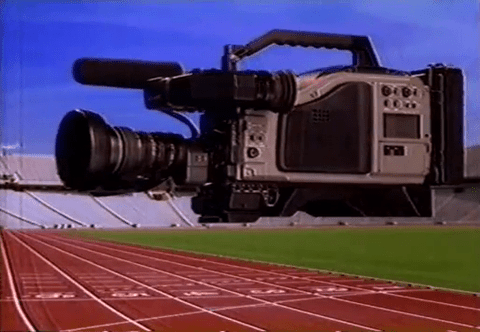
2K notes
·
View notes
Text

George Lucas showing Carrie Fisher and Mark Hamill how to use a blaster during filming of Star Wars (1977)
895 notes
·
View notes
Text
One of the reasons why the Jedi Order is criticized is the fact that George Lucas' Star Wars actually shows that the good guys can't be always nice and you can't do perfect. The Clone Wars illustrates this masterfully: as Lucas said, "Are they going to stick with their moral rules and all be killed, which makes it irrelevant, or do they help save the Republic?" But some people are just unable to accept this.
There is always a right choice. Right doesn't mean it's the nicest and most perfect choice, the one that you might find the most satisfying and pure. But it's the best choice you can make in given circumstances. And in 99% of life, that's all we can do.
1K notes
·
View notes
Text
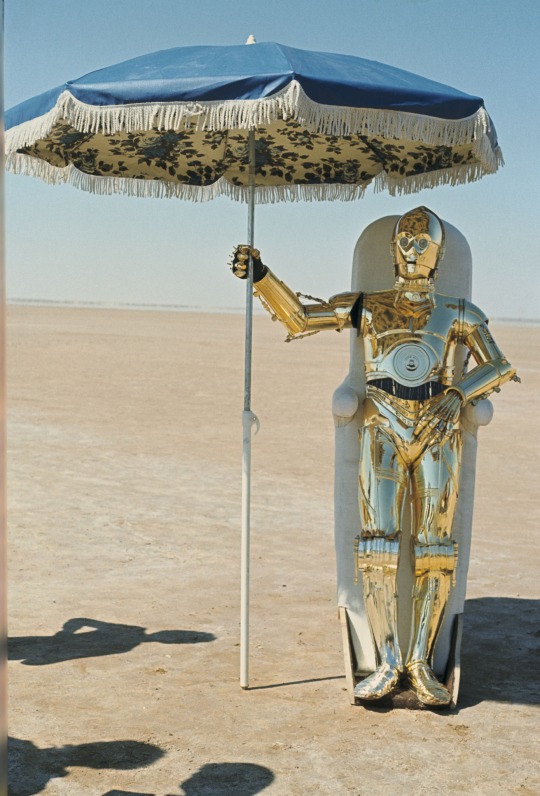
C-3PO (Anthony Daniels) getting some much needed shade in the desert while filming "Star Wars/ Episode IV- A New Hope" (1977)
425 notes
·
View notes
Text
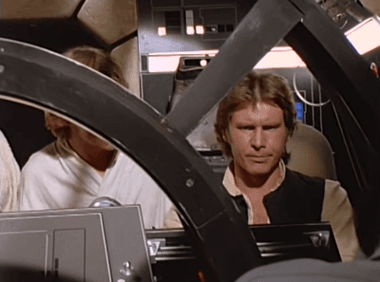
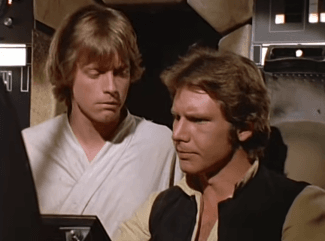
Here's where the fun begins - On the set of Star Wars (1976)
#star wars gif#star wars behind the scenes gif#mark hamill#luke skywalker#may the fourth be with you#harrison ford#han solo#george lucas#millenium falcon#70s sci-fi#70s movies#seventies#1976#1977#gif#chronoscaph gif
758 notes
·
View notes
Text
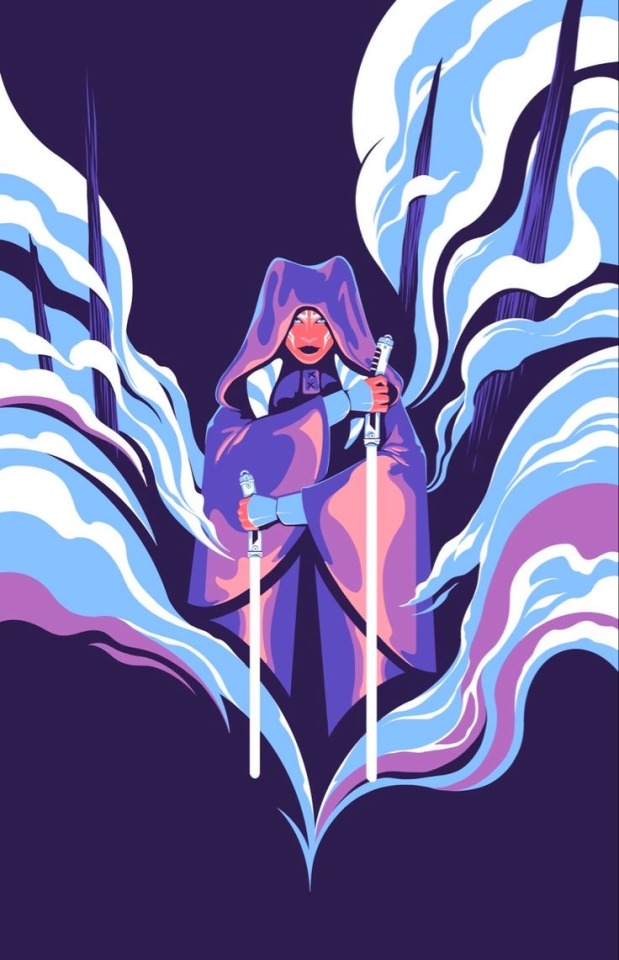
Gonna go make me some food, pack me a vase full of happy trees, and then Ahsokatime 😂
#ahsoka tano#star wars#once a rebel always a rebel#anakin and ahsoka#grand admiral thrawn#sabine wren#ahsoka show#hera syndulla#chopper the war criminal#dave filoni#get ready to watch some wars in the stars#george lucas#the galactic empire#the new republic
1K notes
·
View notes